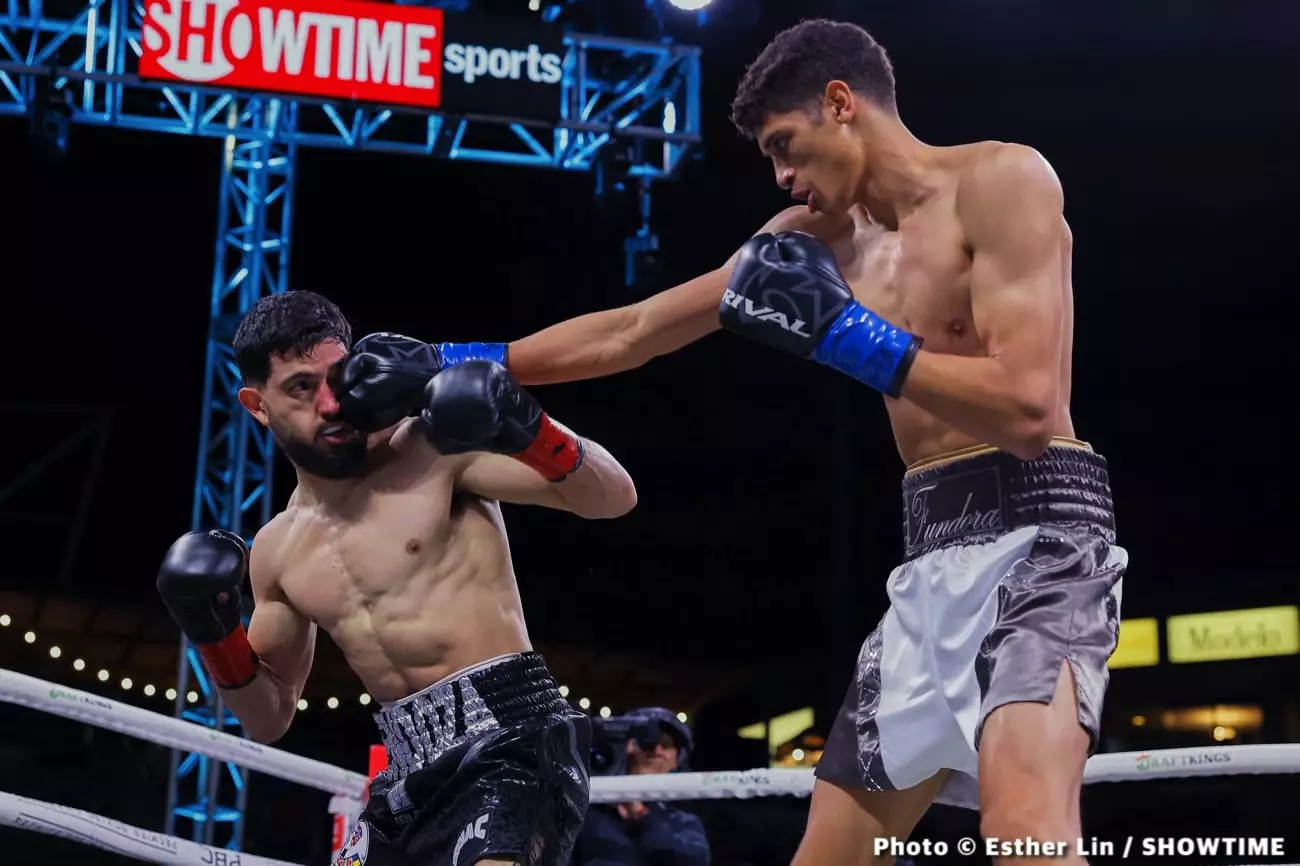The boxing world is abuzz with speculation regarding a potential matchup between Sebastian Fundora and Terence Crawford. Many fans and analysts are keen to see whether Fundora, the current WBC and WBO junior middleweight champion, can convince Crawford to join him in the ring for a significant three-belt unification fight. The stakes are high, and the implications of this bout affect not only the fighters involved but also the wider landscape of the sport.
Sebastian Fundora is looking to elevate his status further by capturing the WBA title currently held by Crawford. His promoter, Sampson Lewkowicz, is actively pushing for this fight, indicating that Fundora is more interested in a high-profile contest against Crawford rather than a possible face-off with Errol Spence. Fundora, standing at an imposing 6’6″, presents a formidable challenge for anyone in the junior middleweight category, and his reach and size could give him an edge in the match.
However, Fundora’s ambition needs to be tempered with the understanding of Crawford’s current positioning in the sport. With a perfect record of 41 wins, 31 of which come by knockout, Crawford represents not just a title on the line, but a significant legacy that all fighters aspire to be part of. Thus, this proposed match bears the weight of not just belts, but also of each fighter’s reputation.
Terence Crawford is at a crucial juncture in his boxing career. Recently turning 37, the former undisputed welterweight champion showed signs of vulnerability during his last fight against Israil Madrimov, where he struggled after a lengthy layoff. This brings into question whether he is truly up for the rigorous demands of facing someone like Fundora.
Boxing analysts, including Chris Algieri, have voiced skepticism about Crawford’s willingness to step in the ring with Fundora. The apparent priority for Crawford seems to be legacy fights, particularly against elite opponents like Canelo Alvarez rather than engaging in a potentially risky bout against a less established, albeit talented fighter in Fundora. When legacy is at stake, decisions become scrutinized for both their potential benefits and dangers. This dilemma indicates that Crawford might opt to wait for more lucrative opportunities that align with his legacy focus, such as a Canelo fight, rather than settle for a challenge against Fundora.
If Crawford does indeed decline to fight Fundora, the consequences could be far-reaching. The vacuum left by such a rejection could signal the end of Crawford’s title pursuits at 154 pounds. More so, it could prompt a chain reaction in the division. Fundora, needing to maintain momentum and relevance, may seek to defend his titles against Errol Spence, who, while not an ideal matchup for thrill-seekers, carries considerable fan interest. This situation could lead to a further dilution of meaningful matchups in the junior middleweight division.
Boxing fans are understandably interested in seeing big fights, but the path of what constitutes a “big fight” often diverges based on fighters’ individual motivations and the timings of their careers. As analysts like Paulie Malignaggi note, fundaments of matchmaking in boxing hinge on fighters not just having talent, but also the strategic decisions made by their promoters and the fighters themselves. In this light, Fundora’s desire to face Crawford could be overshadowed if Crawford’s focus remains squarely on legacy fights that potentially offer greater financial and career significance.
The potential fight between Fundora and Crawford is more than a clash of titans; it embodies the broader themes permeating professional boxing today. Fighters negotiate their paths through the nuanced balance of legacy, risk, and reward. As a more youthful generation of boxers approaches the championship ranks, recognizing and navigating these dynamics will be critical for their success.
While the desire for a unification bout between Fundora and Crawford is palpable, it’s essential to navigate the complexities involved in making such a significant fight happen. Whether Crawford decides to engage in a risky venture with a formidable opponent like Fundora or continues his quest towards a more lucrative legacy fight will ultimately shape not just their careers, but also the future trajectory of the junior middleweight division. The next few decisions in this regard could deeply influence the sport’s landscape as it stands today.

